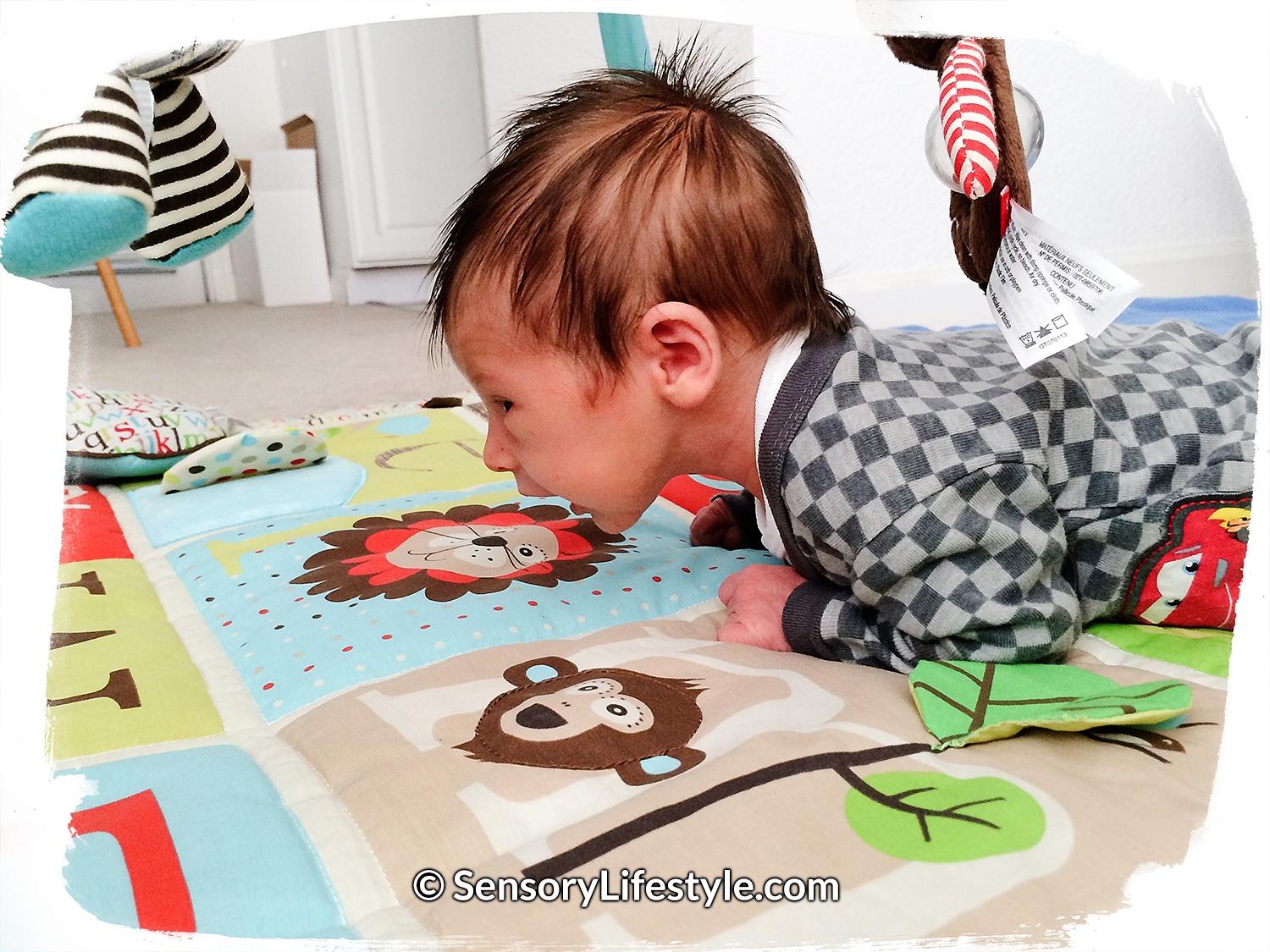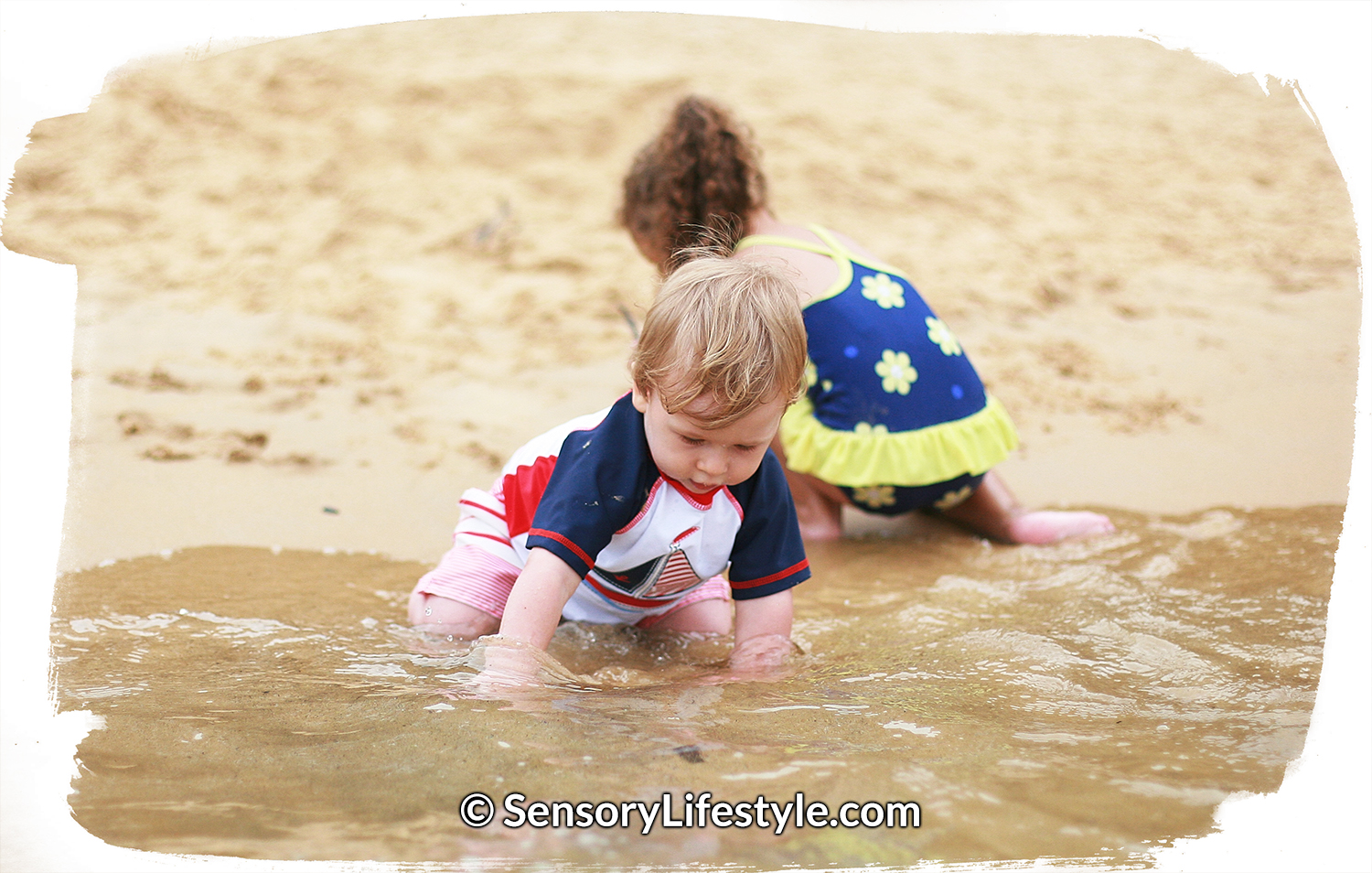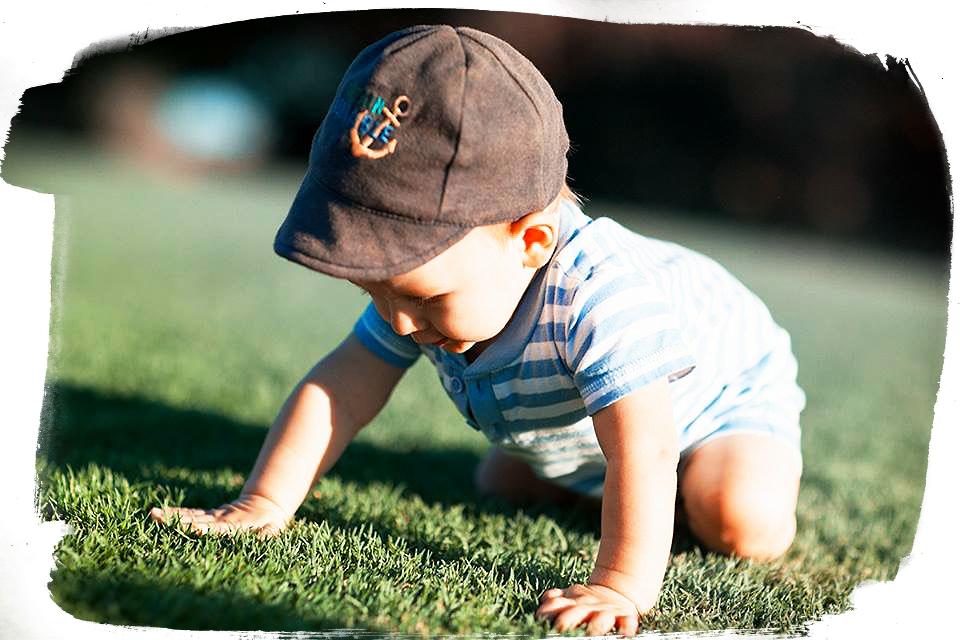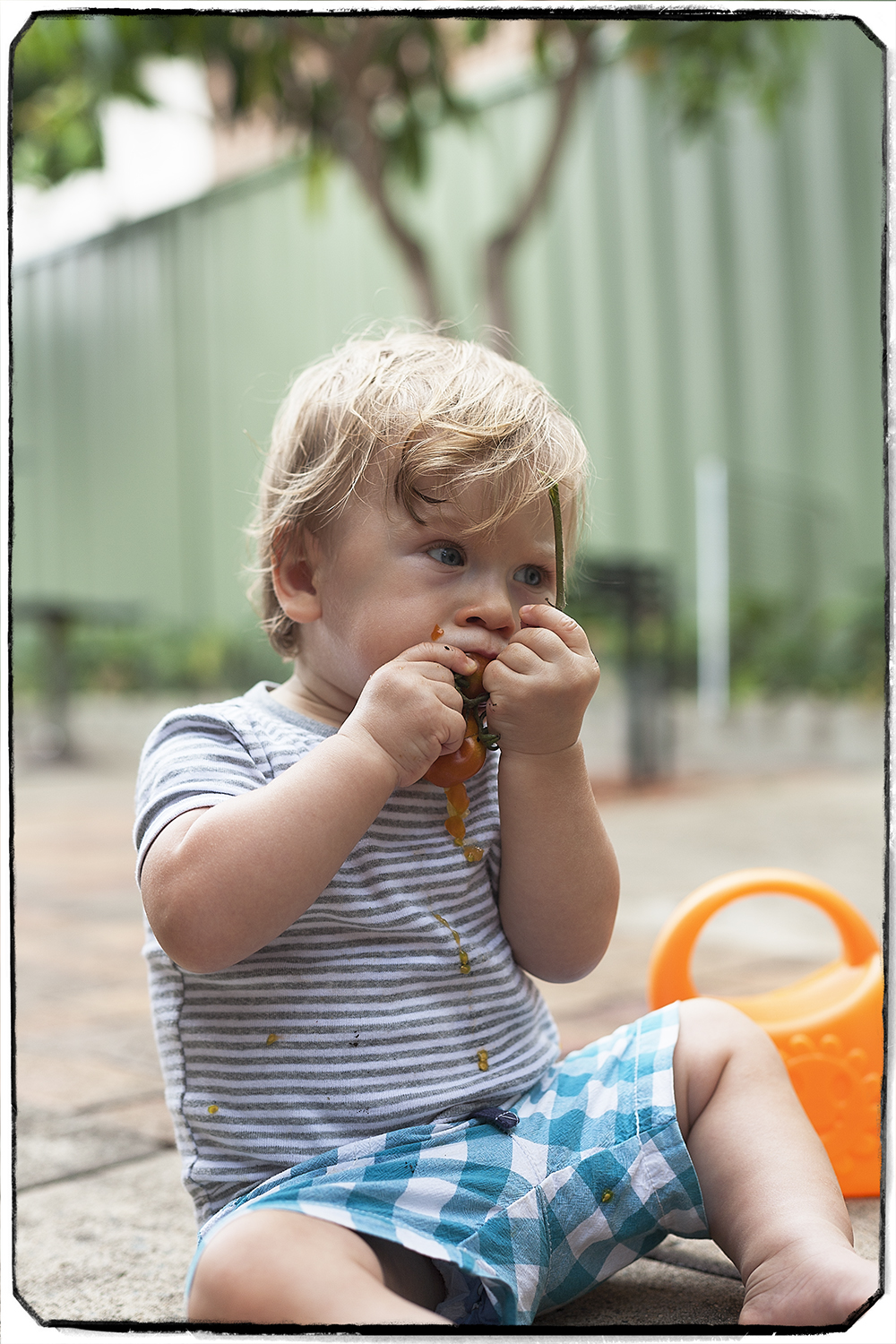Introduction to Sensory Lifestyle Activities

3 min read
Becoming a parent is a journey one cannot prepare for. But one can welcome it through self education. In my profession as an Occupational Therapist (OT) I got first hand experience in supporting kids development. I knew what I needed to do to ensure that my son develops an inquisitive mind and a strong body. Well I did know but I never accounted for sleepless nights and pure exhaustion…hmmm. Don’t be too hard on yourself. You can still do sensory activities to support your child’s development. To start they may just need to be in bedded into your daily routines.
Tummy time
So when Josh was born in January of 2014, I got him to practice tummy time from day one. We (my husband and I) would lay down with him on the floor and position Josh’s chest down. His little neck tried to lift up his heavy head and those deep blue eyes looked deep into ours. I could have stayed like that forever.
Doing tummy time from an early time helps kids develop their core. Strong core muscles make it easier to do many physical activities. In adult life, when you get a personal trainer they always start you off with core exercises. The foundations are pivotal to future strength. And this is exactly what we now see a year later. Josh has developed strong muscles and great head control.
Focus on what’s Important
There are plenty of activities I wanted to try out which I learnt and practiced as an OT. Yet the overwhelming exhaustion of having a newborn meant I had to focus. I focused on what’s most important. This meant that I could fit the important exercises in between feeding, changing diapers and sleep schedules. Doing things while changing diapers or clothes is another strategy. Check out the Dwight Eisenhower’s urgency-importance decision matrix if you need help in prioritizing.
Playing, a social bond
Playing and developing a bond with your child is essential for their development. To get you going I have come up with top 10 activities for each month. They have been tried and tested in my experiences as a mother and an Occupational Therapist.
It’s important to remember that every child is different. They have different characteristics and develop their own interests at varying paces. Thus, don’t expect identical results. I hope that you use these examples as starting points. Be creative and adapt them to meet the needs of your child.
The range for normal development is quite large. So if the activities in the specific month do not match your child’s developmental level just look ahead or check the previous sections.
This is important. You want to make sure that the activities that you present them support their growth and do not create stress on both of you. Trust yourself and your instinct. If your child shows no interest in the activity he may not be developmentally ready. Don’t push him or you might stress him out. Instead, move on to a different activity. When circumstances permit, you can come back to that particular activity.
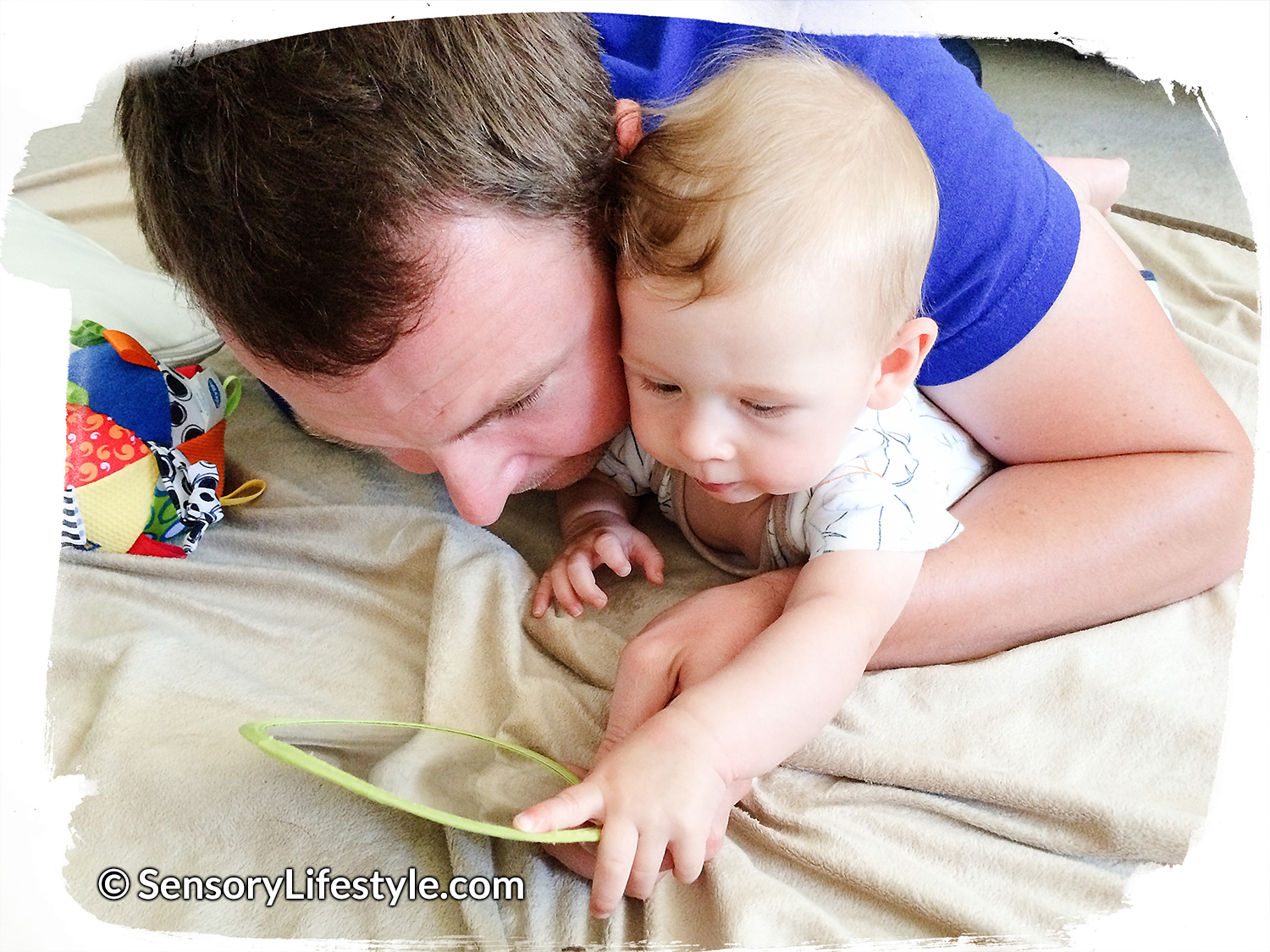
Always remember
Consult with your child’s pediatrician about any developmental issues or concerns you may have. Please do not use the internet as a source of truth for your child. You know your child best.
Final notes
When playing with your children, do not limit yourself or your imagination. The activities provided in this blog post should help spark further creativity. Learn to also follow your child’s lead. From joining them in a game they are engaged in to building on a game further.
You can help your child’s muscle and motor skill development by keeping them physically active. This also provides them with opportunities to explore their surroundings. Just take care not to over stimulate your baby. Take a break when you see signs like turning away from the activity, fatigue and/or fussing.
Most important thing: Have FUN!
~ Urszula
